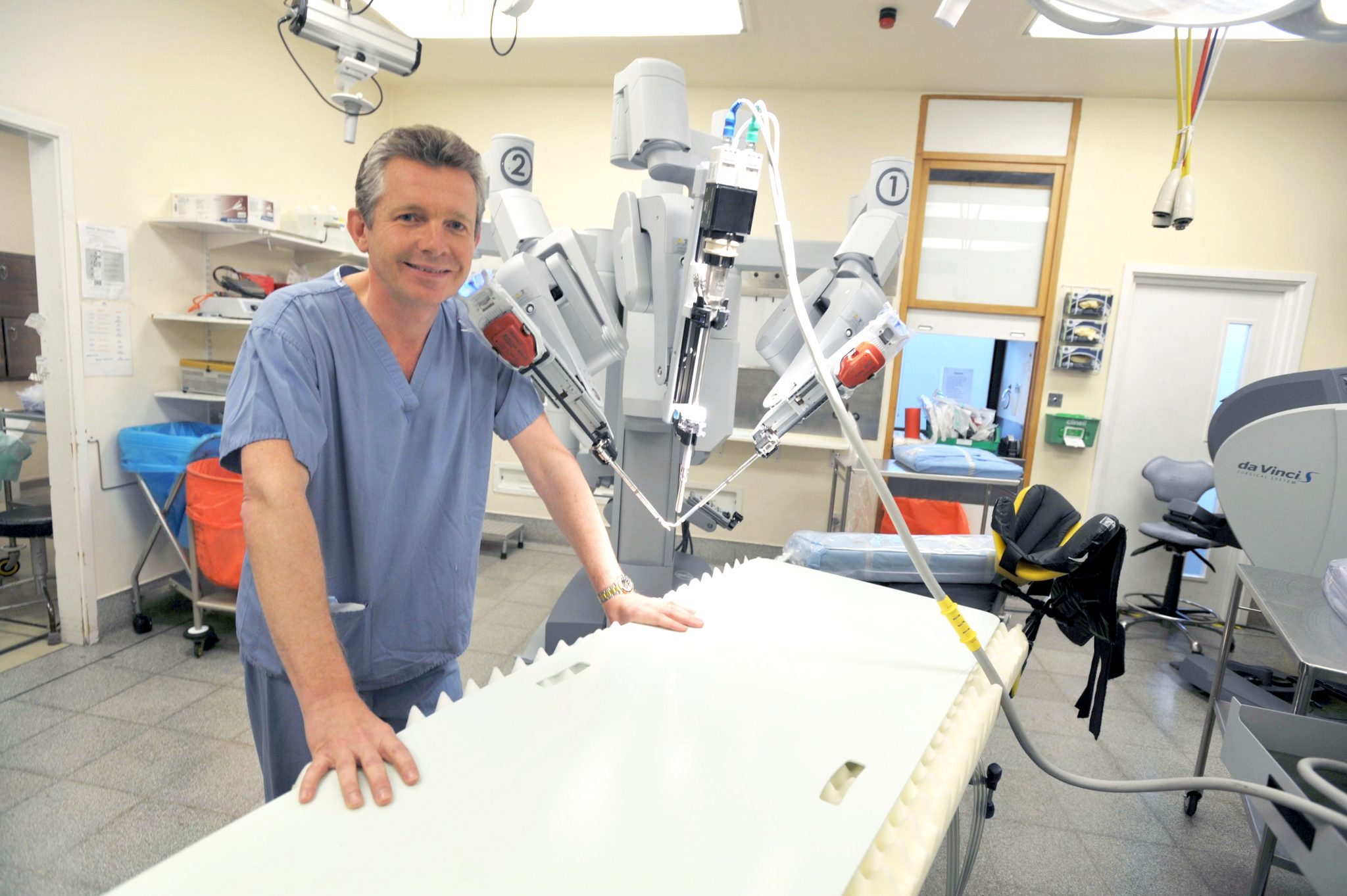On Christmas Eve in 2022 Richard Flashman rushed to the Royal Surrey Hospital with his wife to find out the results of a prostate biopsy. Despite Flashman having no symptoms and no pain, Professor Stephen Langley informed him that a biopsy which had taken 16 samples from his prostate had identified “life-threatening cancer” and there was a risk it would soon spread.
“It was like an out-of-body experience,” Flashman said, recalling his cancer diagnosis. “I thought to myself, ‘This is not me listening to all this’.” Due to following the advice to get tested, Flashman was comforted by the assurance that they had “spotted the cancer early and it was treatable”.
Flashman, 69, was one of the 263 men who was found to have prostate cancer after a targeted screening programme took place over 18 months between August 2022 and April 2024 and identified nearly 70,000 men who were at risk due to their black ethnicity or a history of prostate cancer in their families.
• Charities warn of disappointment if prostate cancer screening rejected
The Targeted Prostate Health Check programme, which received financial help from NHS England, sent 137,993 SMS texts via Medefer, a virtual healthcare provider, to men at risk between the ages of 50 and 70 (from 45 years if they were black) and was the first screening programme of its kind in the UK to utilise MRI (magnetic resonance imaging).
With MPs set to discuss plans in the House of Commons on Tuesday for the rollout of a national screening programme, Langley, who led the research which is due to be published in the journal European Urology Oncology, said the screening programme had shown the NHS has the ability to save thousands of men’s lives without burdening GPs.
“Our study has shown a really possible way to roll out targeted screening in the NHS without a great increase in infrastructure, without more radiologists and without more MRI scanners,” Langley said.
During the targeted screening programme, which saved lives in Surrey and Sussex, researchers were able to draw on GP practices’ data relating to age, ethnicity and family history. The programme also looked at which practices were not referring a high number of patients to get PSA (prostate-specific antigen) tests and focused on particularly deprived areas.
“We know that by screening men, we can reduce their risk of dying from this disease so isn’t it now time we offer this screening to men with the highest risk?” Langley said.

Professor Stephen Langley wants screening to be offered to men with the highest risk of developing prostate cancer
More than 44,000 men are diagnosed with prostate cancer every year in England and one in eight men will be diagnosed with prostate cancer in their lifetime. The targeted screening programme specifically focused on black men as well, as they are more likely to get prostate cancer than other men.
Next month the National Screening Committee is due to make recommendations on whether to introduce a screening programme. Langley said it was important this committee understood their research was “real world data” and they were “not detecting lots of clinically irrelevant prostate cancer”.
A recent University of Oxford study found that celebrity prostate awareness campaigns had led to harmful “overtesting” in men without symptoms. After the Olympian Sir Chris Hoy opened up about his prostate cancer in The Sunday Times, a report presented to the University Hospitals Plymouth in June found there had been a 55 per cent rise in prostate cancer referrals since last November. The Oxford study called for better guidelines for when and how often men should get tested.
At present all men aged over 50 can ask their GP for a PSA test even if they do not have symptoms, and black men can ask for one from the age of 45. Prostate cancer charities are calling for these guidelines to be overhauled so the tests are proactively offered to men at highest risk, as part of a targeted screening programme.
• NHS advisers set to reject routine prostate cancer screening
• Screening for prostate cancer is not a no-brainer. Here’s why
Dr Simon Bott, one of the authors of the targeted screening research and a urologist at Frimley Park Hospital in Surrey, said the programme had identified men between the ages of 50 and 70 as these were the men who would benefit from treatment and be cured. The targeted screening Bott and other prostate charities are promoting intends to “not subject older men to the side effects of unnecessary treatment”.
Flashman chose to have radiotherapy to treat his cancer as this was the least invasive route in his opinion. He has since recovered but says that his case proves that targeted screening needs to be rolled out across the NHS.
“From the perspective of someone who received a text message to get tested and underwent treatment successfully, I would say that introducing targeted screening in the NHS is lacking a sense of urgency,” Flashman said.
“Catching the prostate cancer earlier is cheaper than treating men later once it has spread and my case proves that testing more men will only save more lives.”

